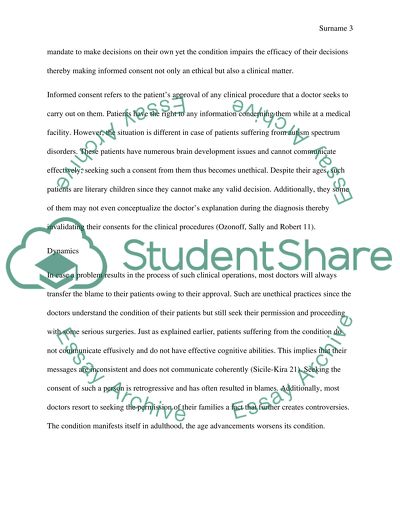Cite this document
(“Autism spectrum disorder Research Paper Example | Topics and Well Written Essays - 1750 words”, n.d.)
Autism spectrum disorder Research Paper Example | Topics and Well Written Essays - 1750 words. Retrieved from https://studentshare.org/health-sciences-medicine/1482220-autism-spectrum-disorder
Autism spectrum disorder Research Paper Example | Topics and Well Written Essays - 1750 words. Retrieved from https://studentshare.org/health-sciences-medicine/1482220-autism-spectrum-disorder
(Autism Spectrum Disorder Research Paper Example | Topics and Well Written Essays - 1750 Words)
Autism Spectrum Disorder Research Paper Example | Topics and Well Written Essays - 1750 Words. https://studentshare.org/health-sciences-medicine/1482220-autism-spectrum-disorder.
Autism Spectrum Disorder Research Paper Example | Topics and Well Written Essays - 1750 Words. https://studentshare.org/health-sciences-medicine/1482220-autism-spectrum-disorder.
“Autism Spectrum Disorder Research Paper Example | Topics and Well Written Essays - 1750 Words”, n.d. https://studentshare.org/health-sciences-medicine/1482220-autism-spectrum-disorder.


